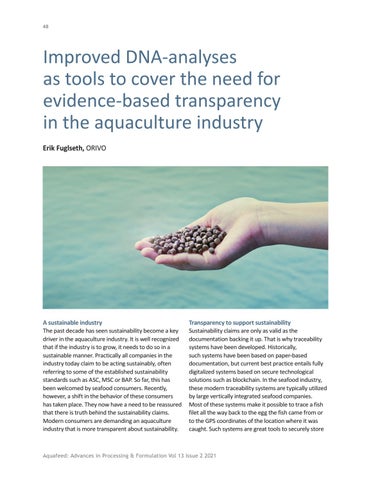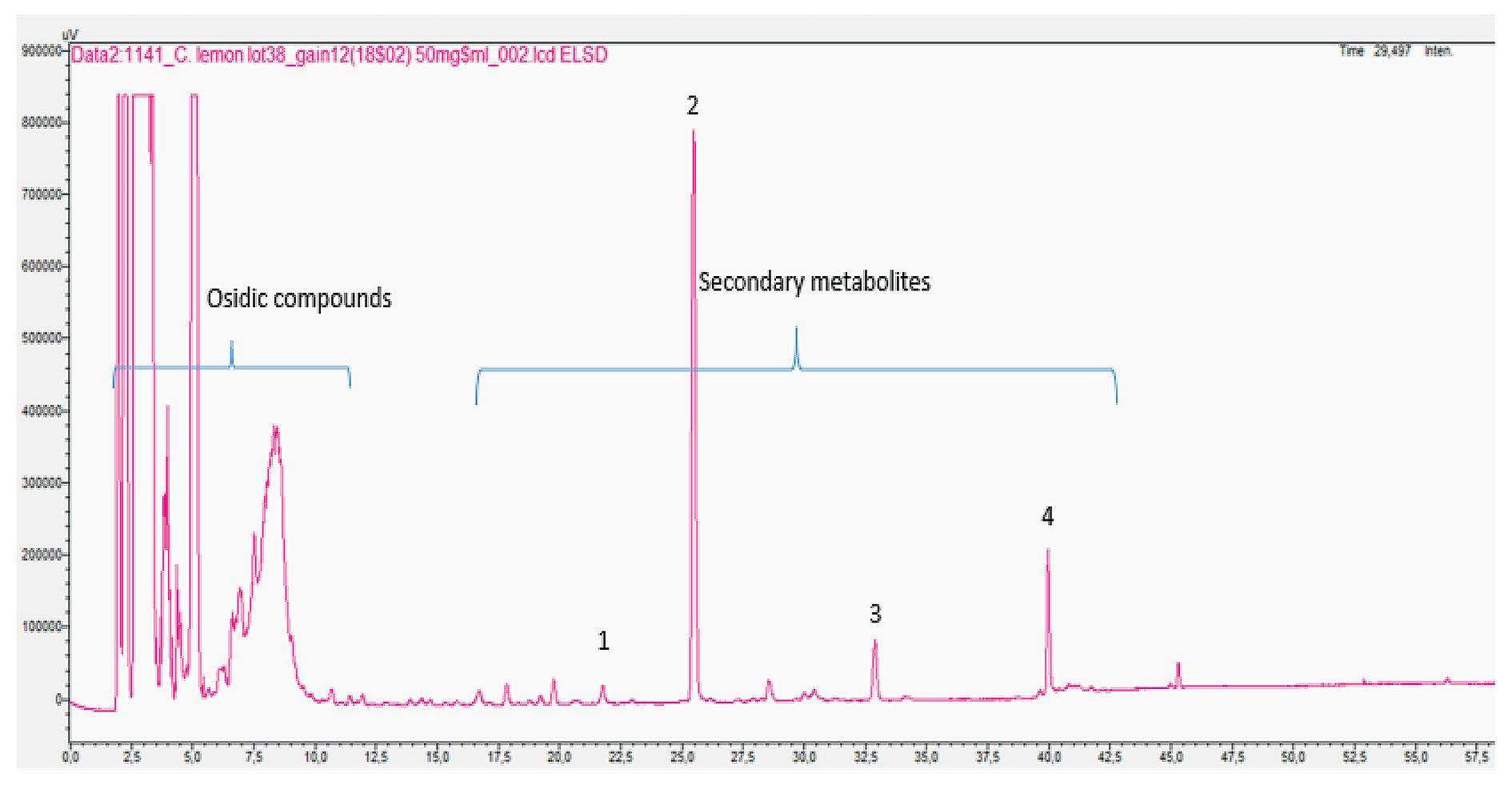48
Improved DNA-analyses as tools to cover the need for evidence-based transparency in the aquaculture industry Erik Fuglseth, ORIVO
A sustainable industry The past decade has seen sustainability become a key driver in the aquaculture industry. It is well recognized that if the industry is to grow, it needs to do so in a sustainable manner. Practically all companies in the industry today claim to be acting sustainably, often referring to some of the established sustainability standards such as ASC, MSC or BAP. So far, this has been welcomed by seafood consumers. Recently, however, a shift in the behavior of these consumers has taken place. They now have a need to be reassured that there is truth behind the sustainability claims. Modern consumers are demanding an aquaculture industry that is more transparent about sustainability.
Transparency to support sustainability Sustainability claims are only as valid as the documentation backing it up. That is why traceability systems have been developed. Historically, such systems have been based on paper-based documentation, but current best practice entails fully digitalized systems based on secure technological solutions such as blockchain. In the seafood industry, these modern traceability systems are typically utilized by large vertically integrated seafood companies. Most of these systems make it possible to trace a fish filet all the way back to the egg the fish came from or to the GPS coordinates of the location where it was caught. Such systems are great tools to securely store
Aquafeed: Advances in Processing & Formulation Vol 13 Issue 2 2021











